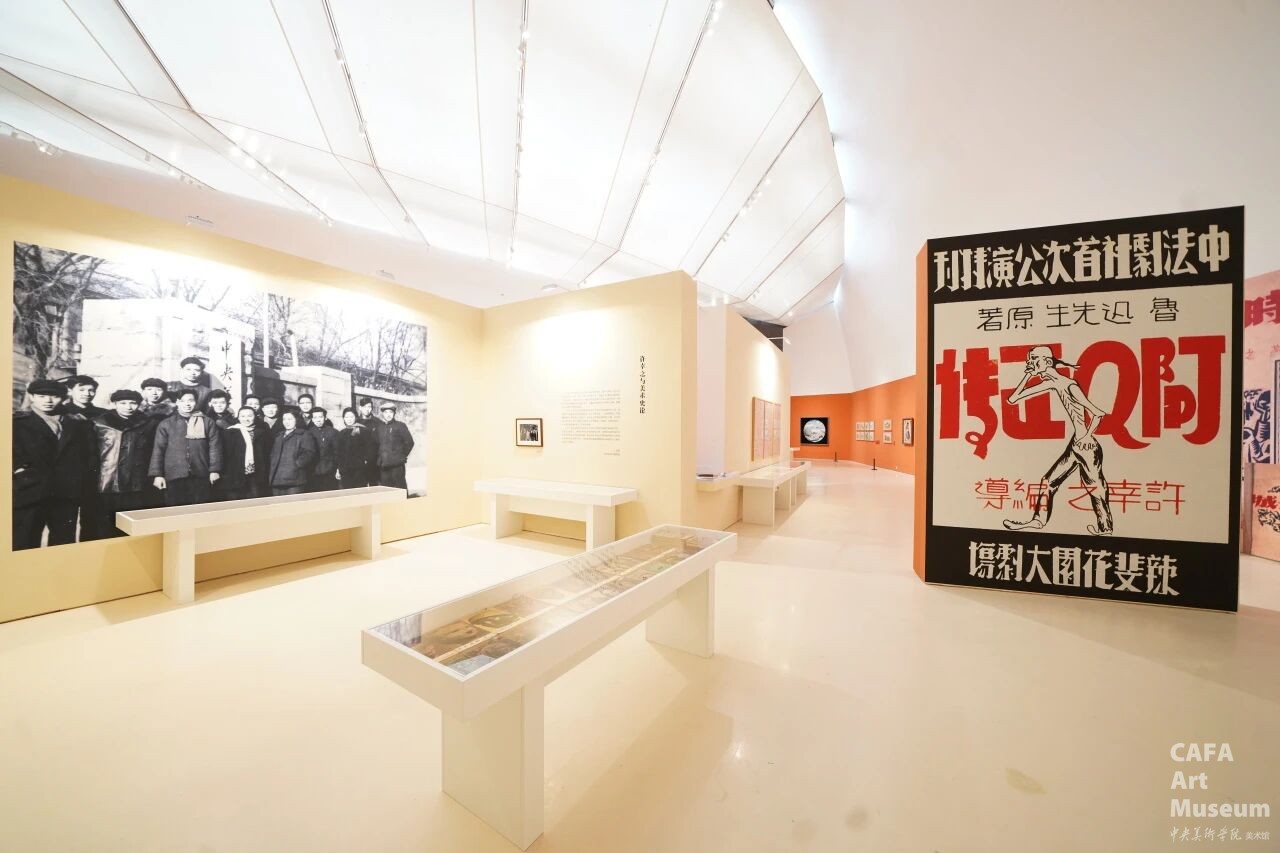

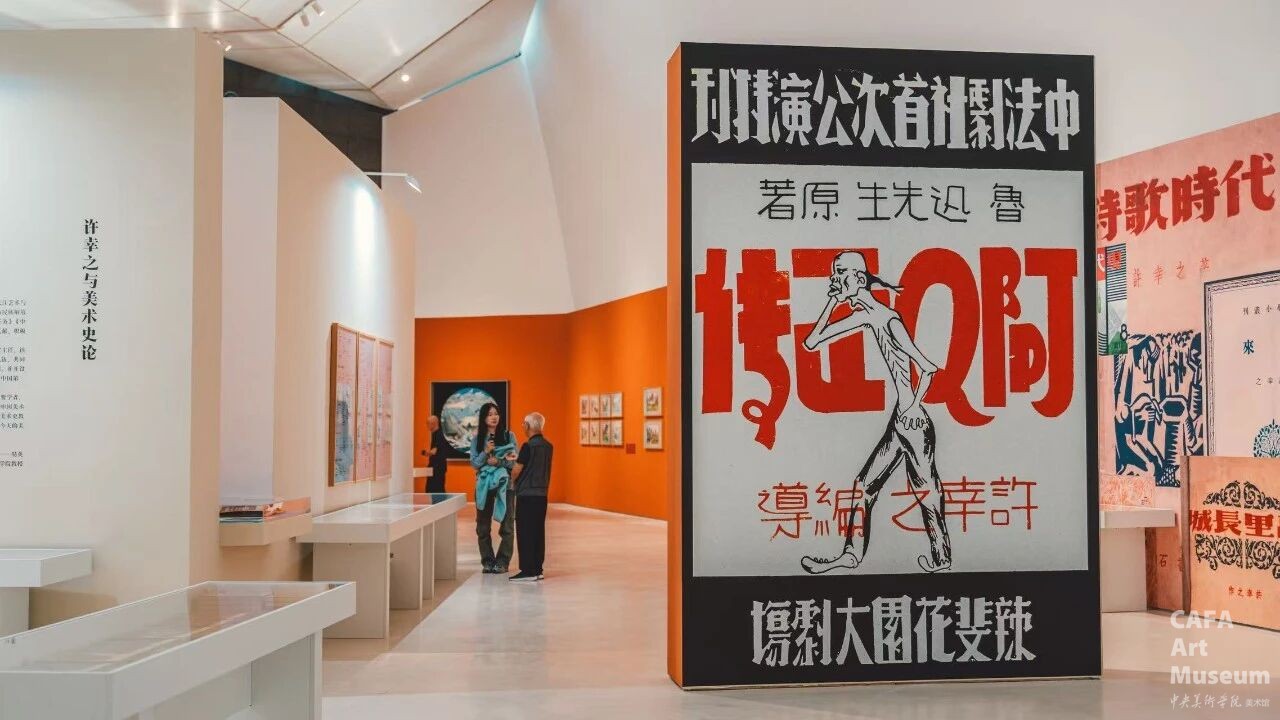
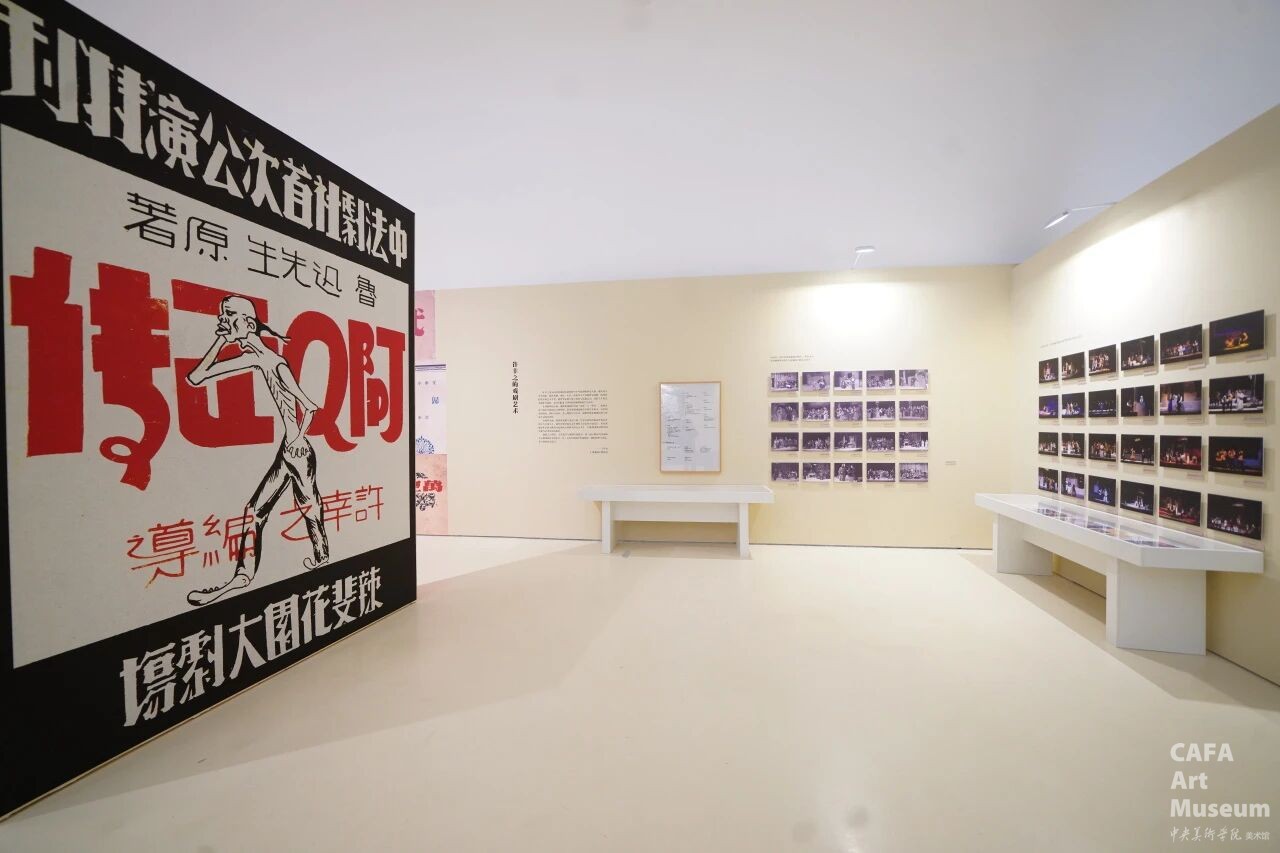
"A Majestic Ode to China--Xu Xingzhi's Artistic Achievement"
Exhibition Site
Promotional Video for “A Heroic Ode ToChina – Xu Xingzhi's Artistic Achievements”
Xu Xingzhi is an important figure that cannot be overlooked in the development of modern Chinese drama. Having received professional training in fine arts, he made achievements in multiple fields such as drama, film, fine arts, and poetry, demonstrating his cross-media artistic talents. With a firm left-wing stance, he participated in the modern drama movement, was active in groups like the Shanghai Art Troupe, and personally witnessed and promoted the birth and development of modern Chinese drama.
In terms of drama theory, he proposed that drama should possess both "inner" and "outer" dimensions, and emphasized a comprehensive theory of the integration of performance and viewing. The former emphasizes that drama integrates various art forms, while the latter highlights the interactive relationship among the audience, the theater, and the actors. He forward-lookingly emphasized the importance of theatricality and the interaction between the audience and the performers.
In terms of creation, he had both screenwriting and directing talents. His representative works include Eternal Love adapted from a world classic, The Last Christmas Eve which depicts the lives of people after the fall of Hong Kong, and the six-act play The True Story of Ah Q, which was polished and revised over many years with his painstaking efforts. All these works reflect his concern for reality and his exploration of artistic forms.
He integrated his literary accomplishment, fine arts skills and theatrical practice, endowing the stage with profound humanistic spirit and artistic appeal. He was truly a versatile dramatist. His thoughts and works still hold inspiring significance to this day.
——Ding Luonan
Professor, Shanghai Theatre Academy
This exhibition is by far the largest and most comprehensive retrospective of Xu Xingzhi's artistic achievements. Through more than 400 representative works as well as precious documents, it presents the artist's outstanding accomplishments in multiple fields—including painting, art history, literature, film, and drama—to the audience in an all-round, multi-dimensional, and in-depth manner. The exhibition will close on October 31st; audiences who are interested should not miss it!
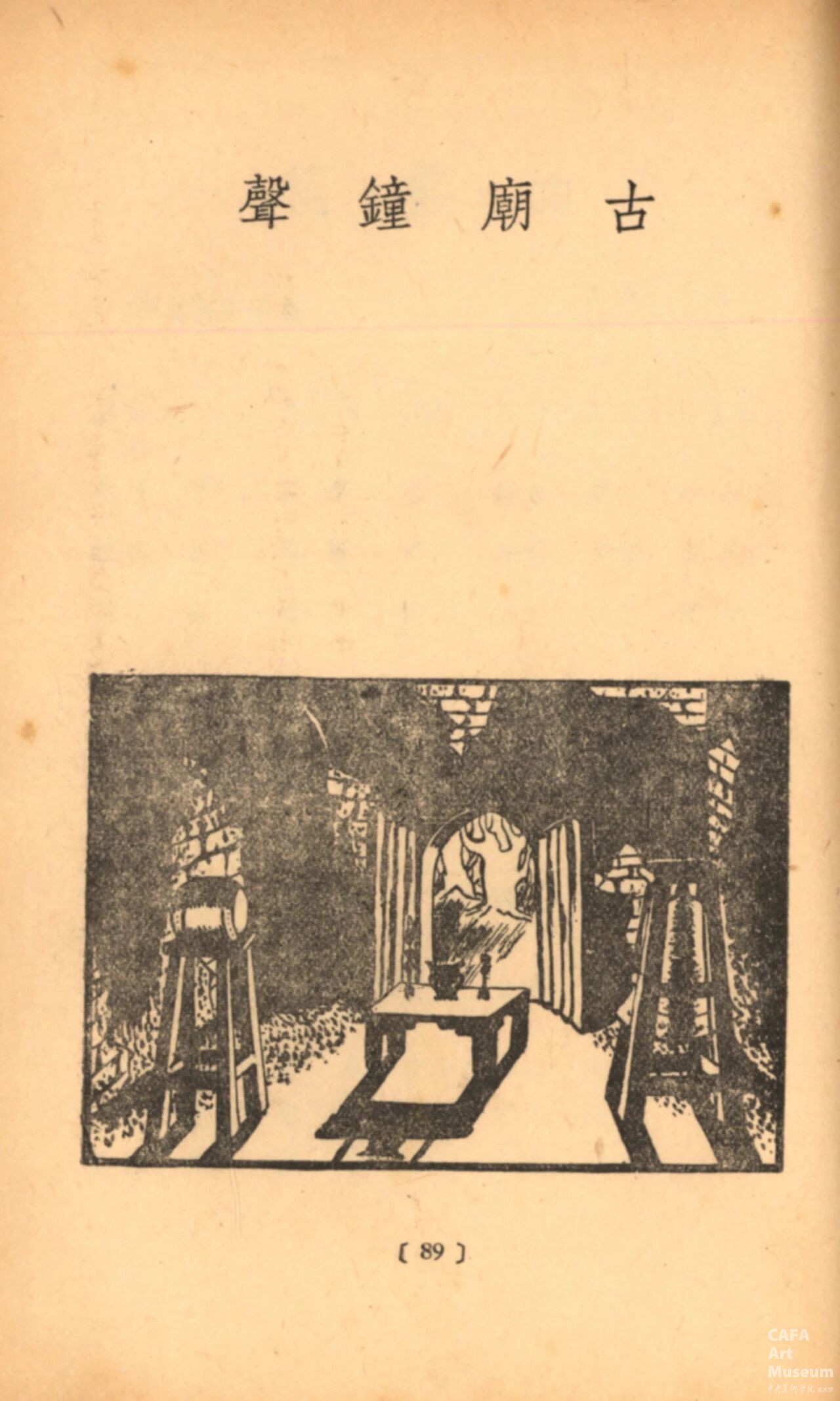
The First Page of Xu Xingzhi's Anti-Japanese Children's Drama Script The Bell of the Ancient Temple (1936)
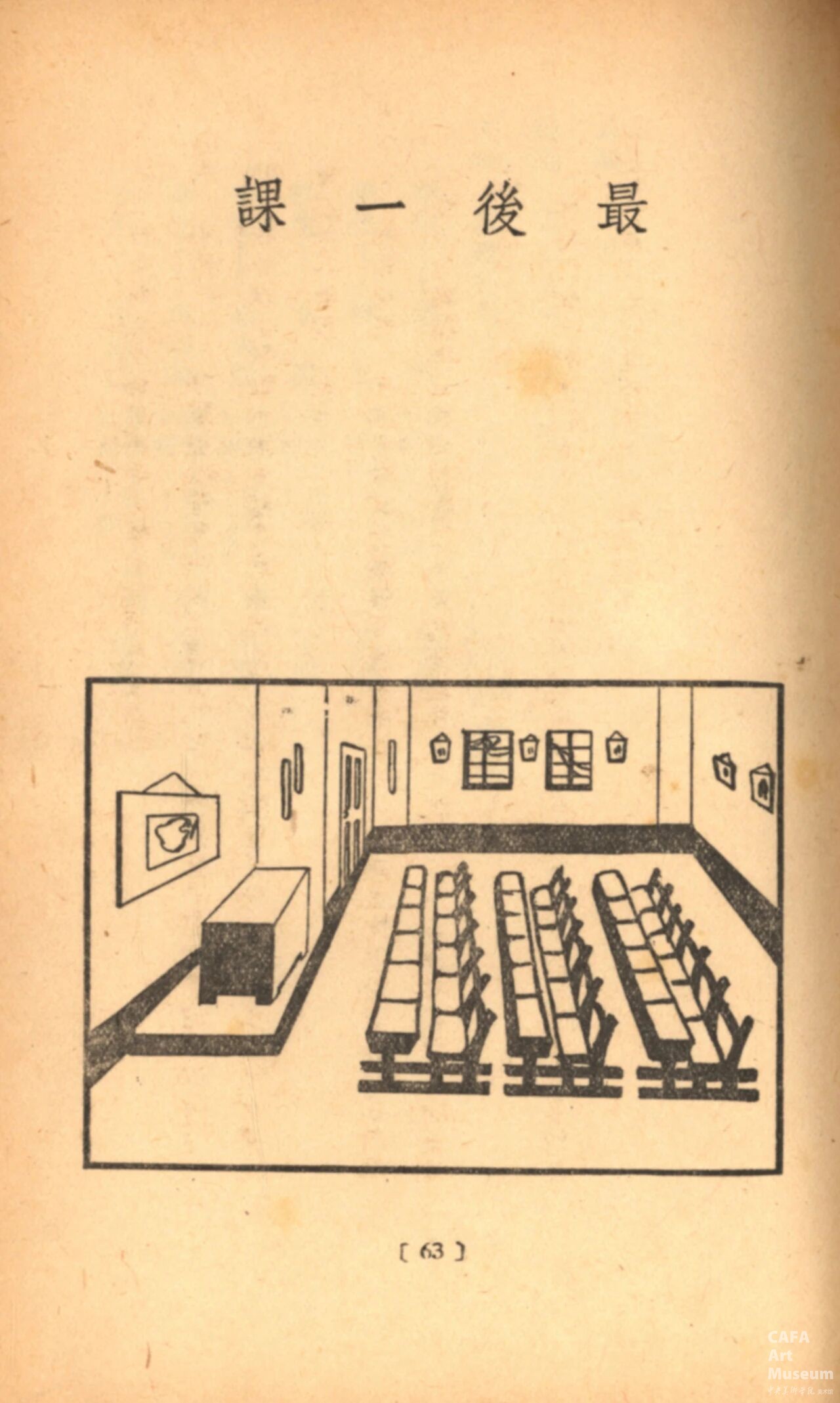
The First Page of Xu Xingzhi's Anti-Japanese Children's Drama Script The Last Lesson (1936)
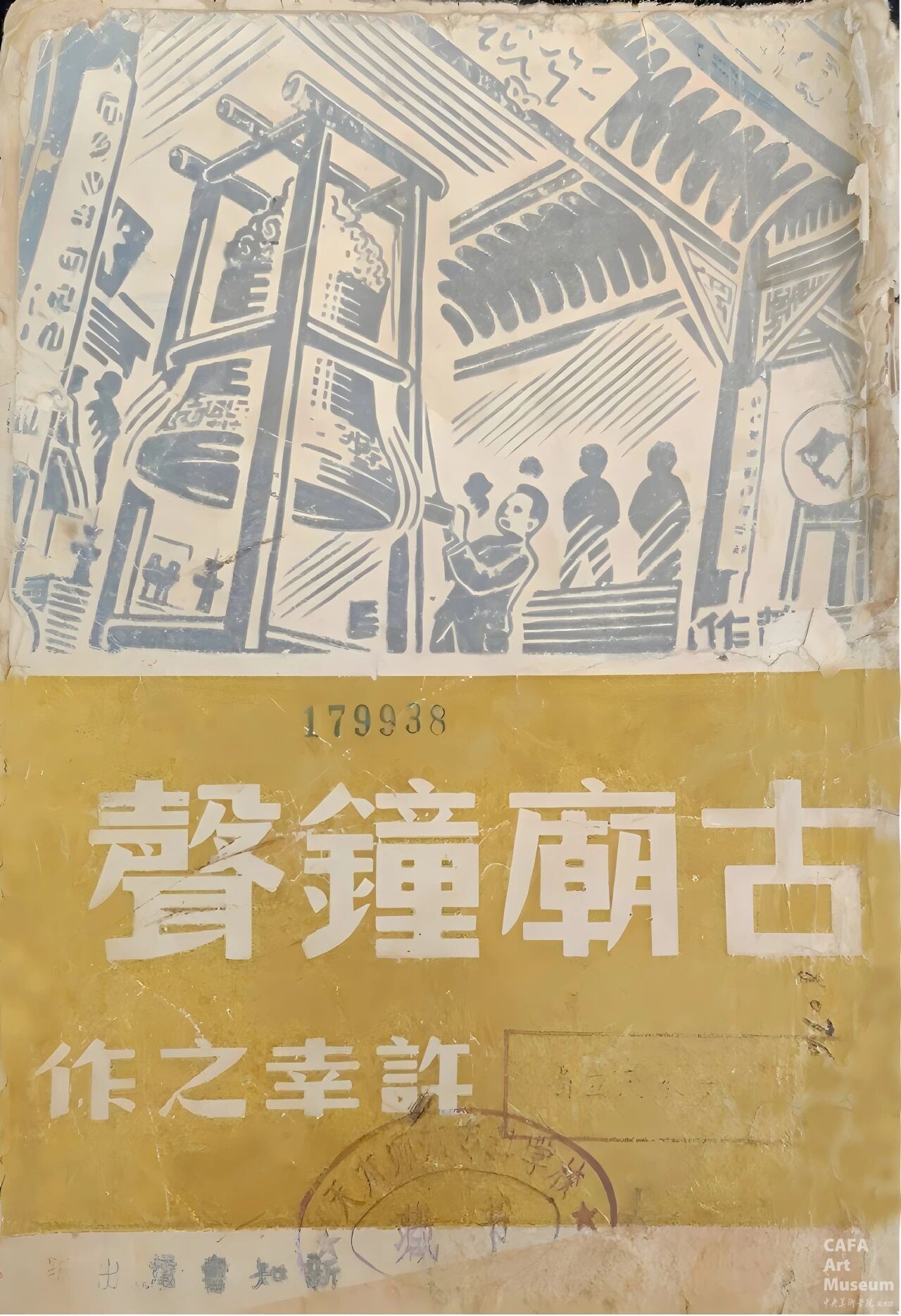
In February 1937, the anti-Japanese children's drama The Bell of the Ancient Temple (cover), written by Xu Xingzhi,
was published by Shanghai Xinzhi Bookstore. According to Beyond the Great Wall by Mrs. Snow (Nym Wales),
this children's drama was staged in Yan'an shortly afterwards.
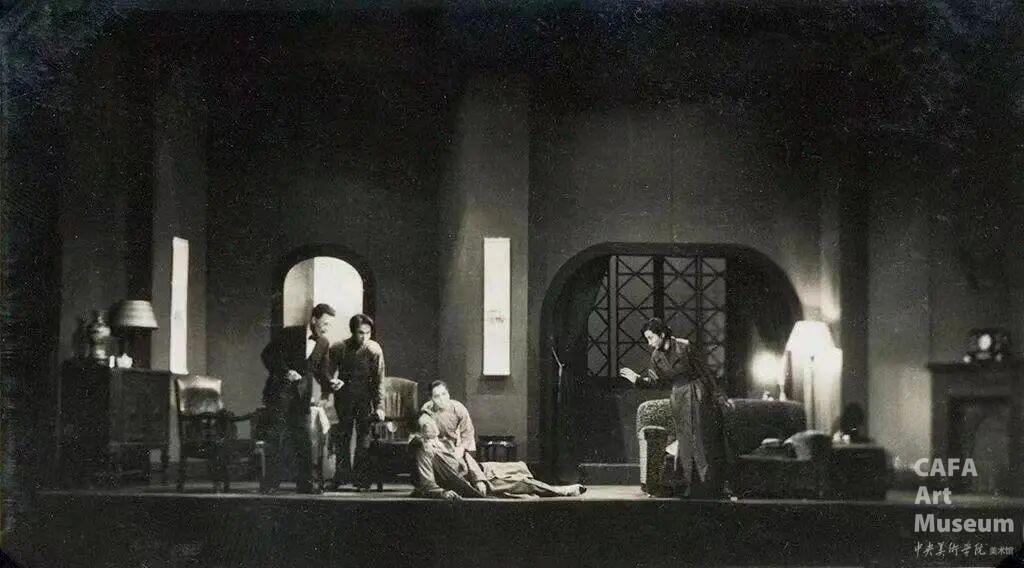
Stage Photo of Thunderstorm, a play by Cao Yu, Directed by Xu Xingzhi
and Performed by the Blue Bird Drama Troupe, December 1937
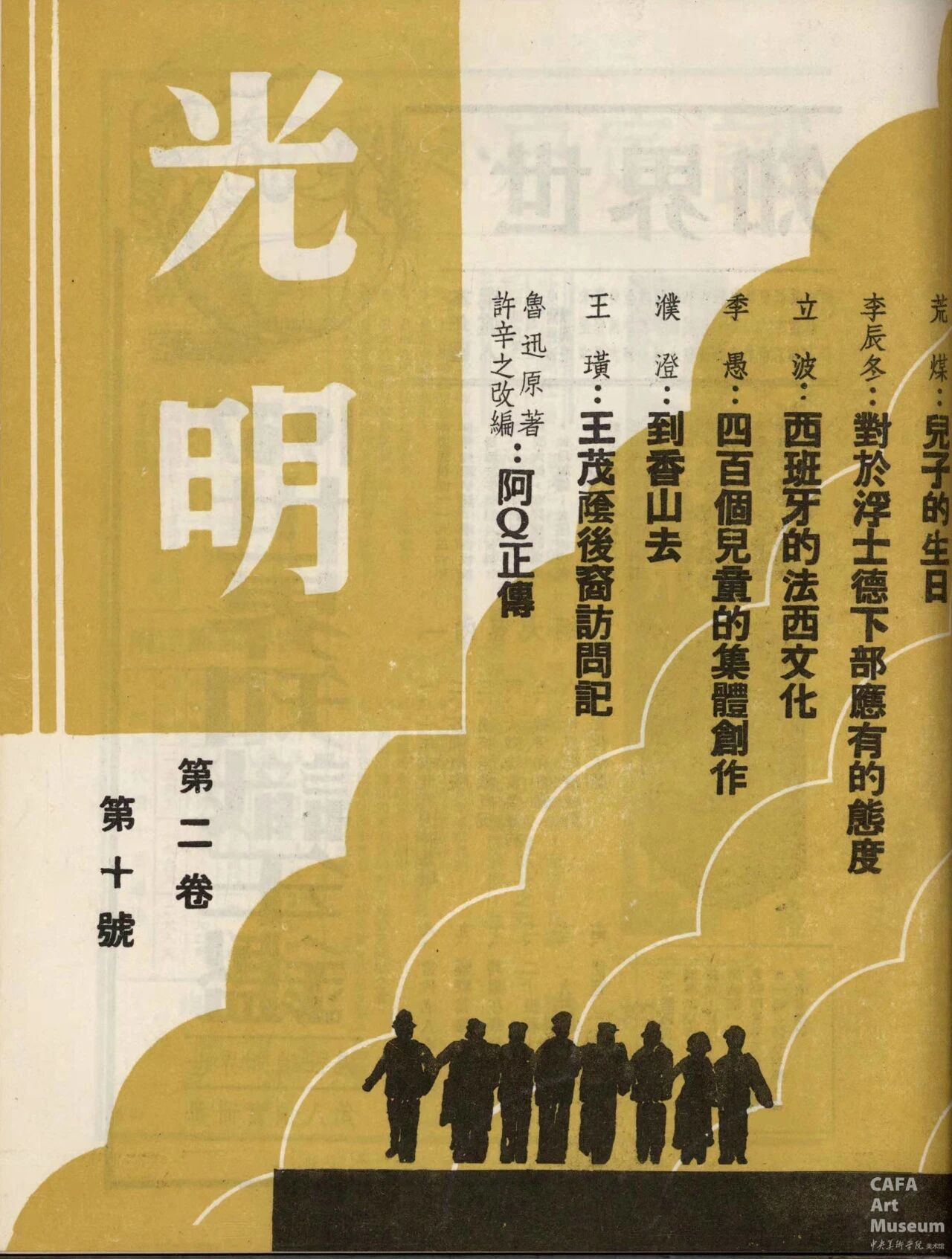
In 1937, Xu Xingzhi adapted Lu Xun's classic work into a six-act drama The True Story of Ah Q for the first time.
The script of this drama was serialized in the 10th issue of the 2nd volume of the semi-monthly magazine Brightness.
Soon after, the drama was staged by the "Chinese People's Anti-Japanese Drama Troupe" in Yan'an,
and it was watched by the leaders of the Communist Party of China (CPC) as well as the military and civilians in Yan'an.
The picture shows the cover of this issue.
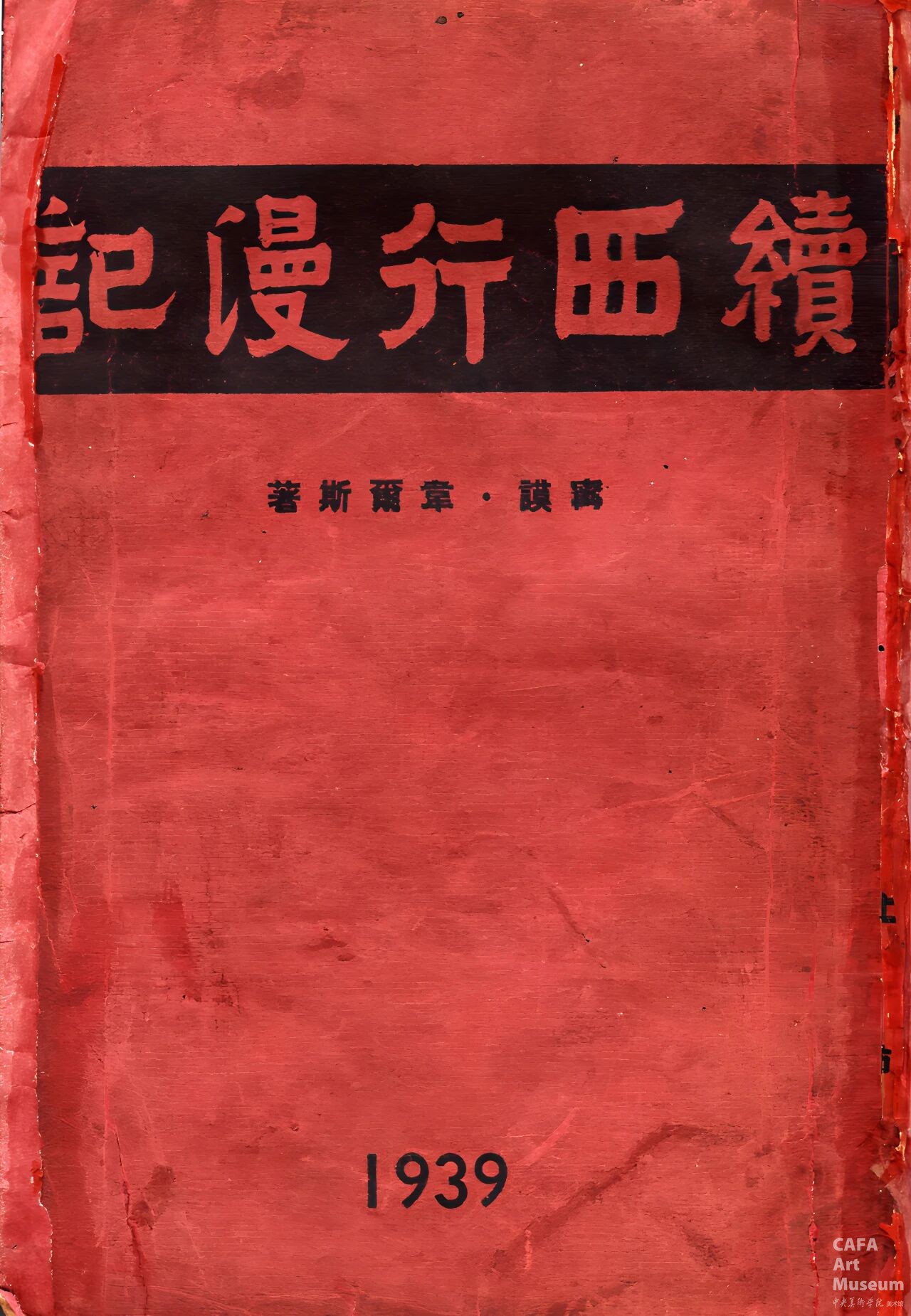
In 1939, an American female journalist published Beyond the Great Wall. In Chapter 3, "The Mobile Troupe",
she recorded that Xu Xingzhi's plays The True Story of Ah Q and The Bell of the Ancient Temple were staged in Yan'an.
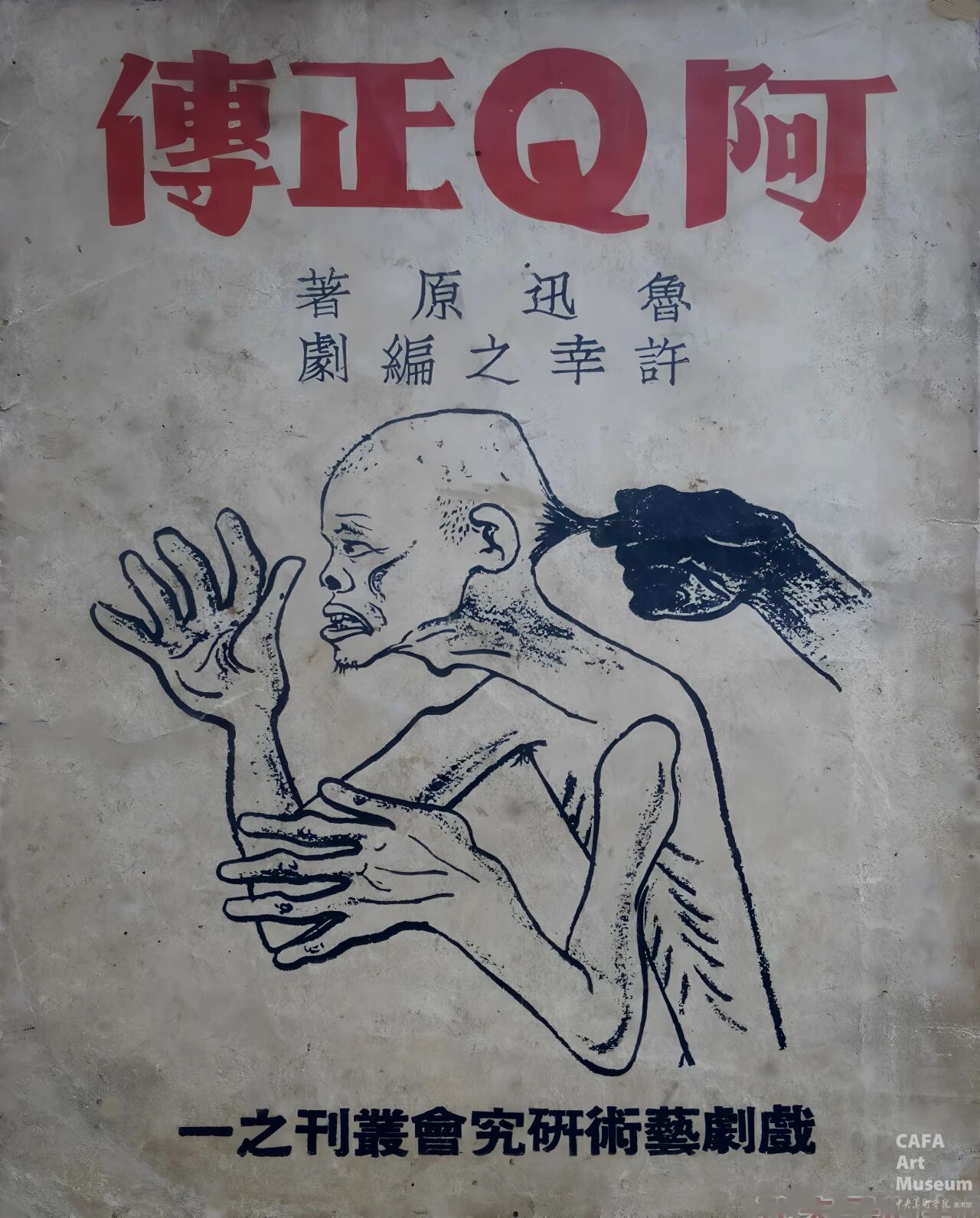
Cover of the stage play script The True Story of Ah Q, adapted from Lu Xun's famous work by Xu Xingzhi,
compiled and printed by the Shanghai Drama Art Research Association, August 1939
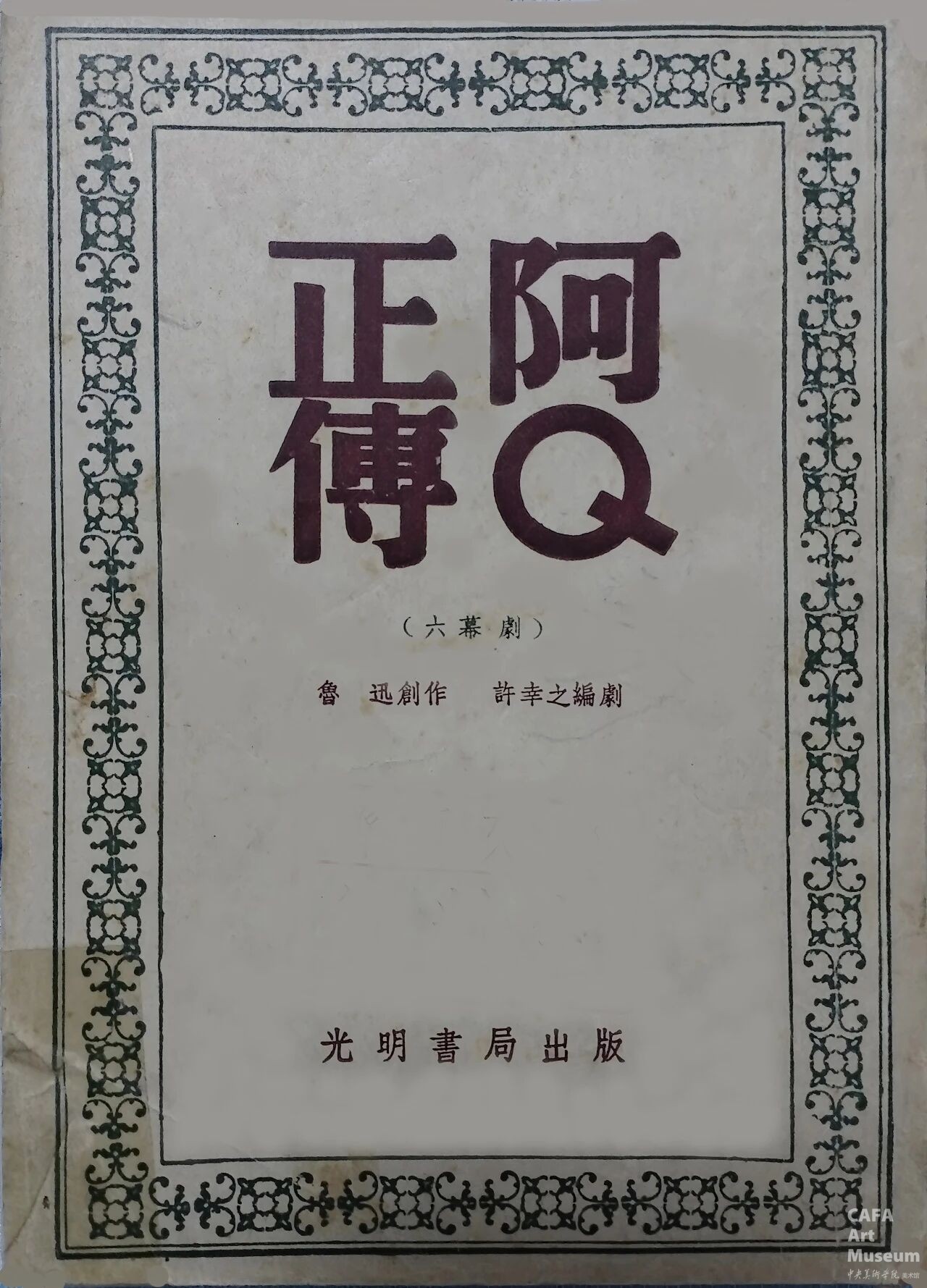
In 1939, Xu Xingzhi adapted Lu Xun's work into the script of a six-act drama The True Story of Ah Q for the second time.
The script was published by Guangming Bookstore in 1940 and went through its 10th printing in 1953.
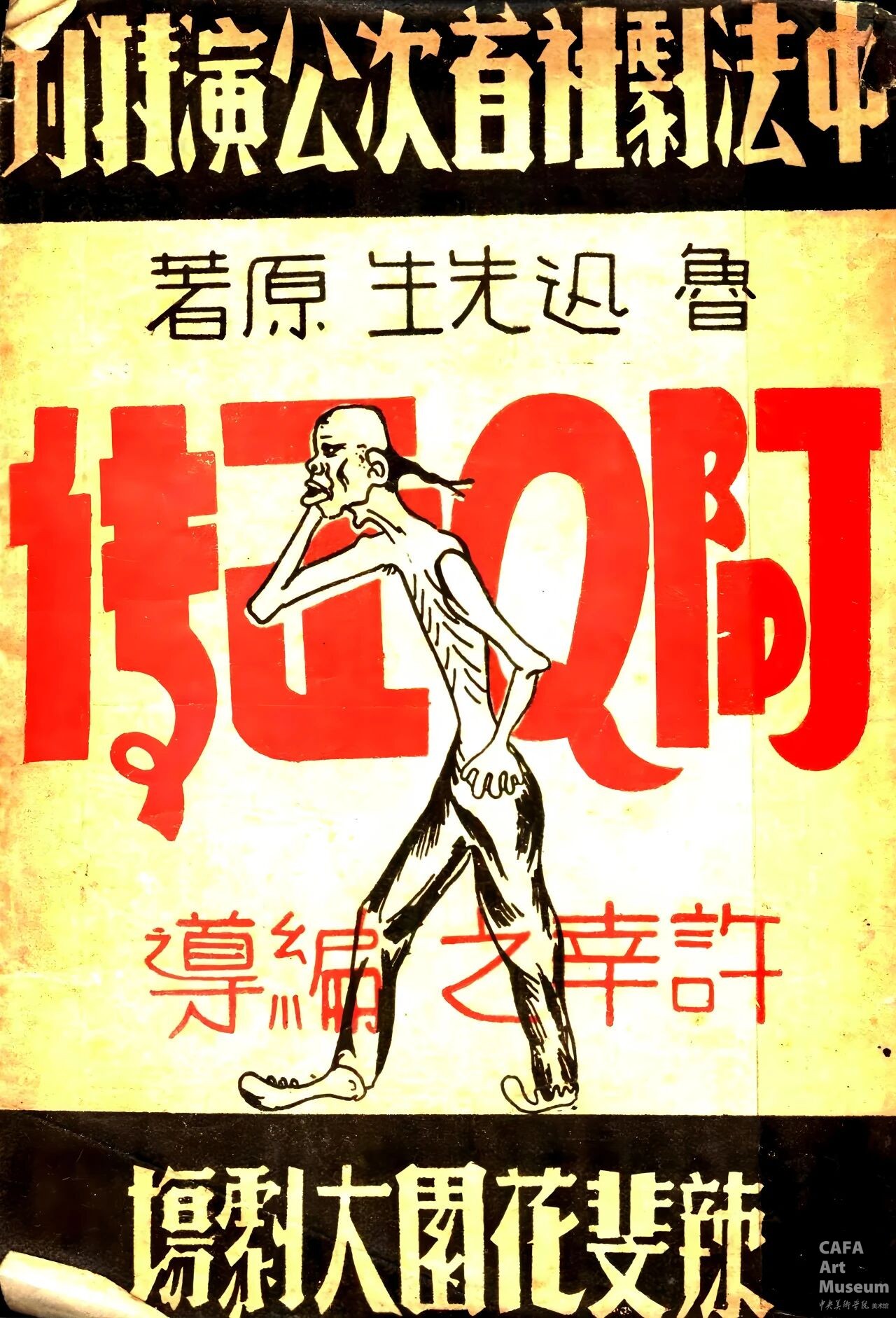
In July 1939, after Xu Xingzhi adapted the six-act drama The True Story of Ah Q for the second time,
he personally directed the Sino-French Drama Troupe in a performance run that lasted for half a month.
This caused a great sensation at that time. The picture shows the printed performance script compiled and published back then.
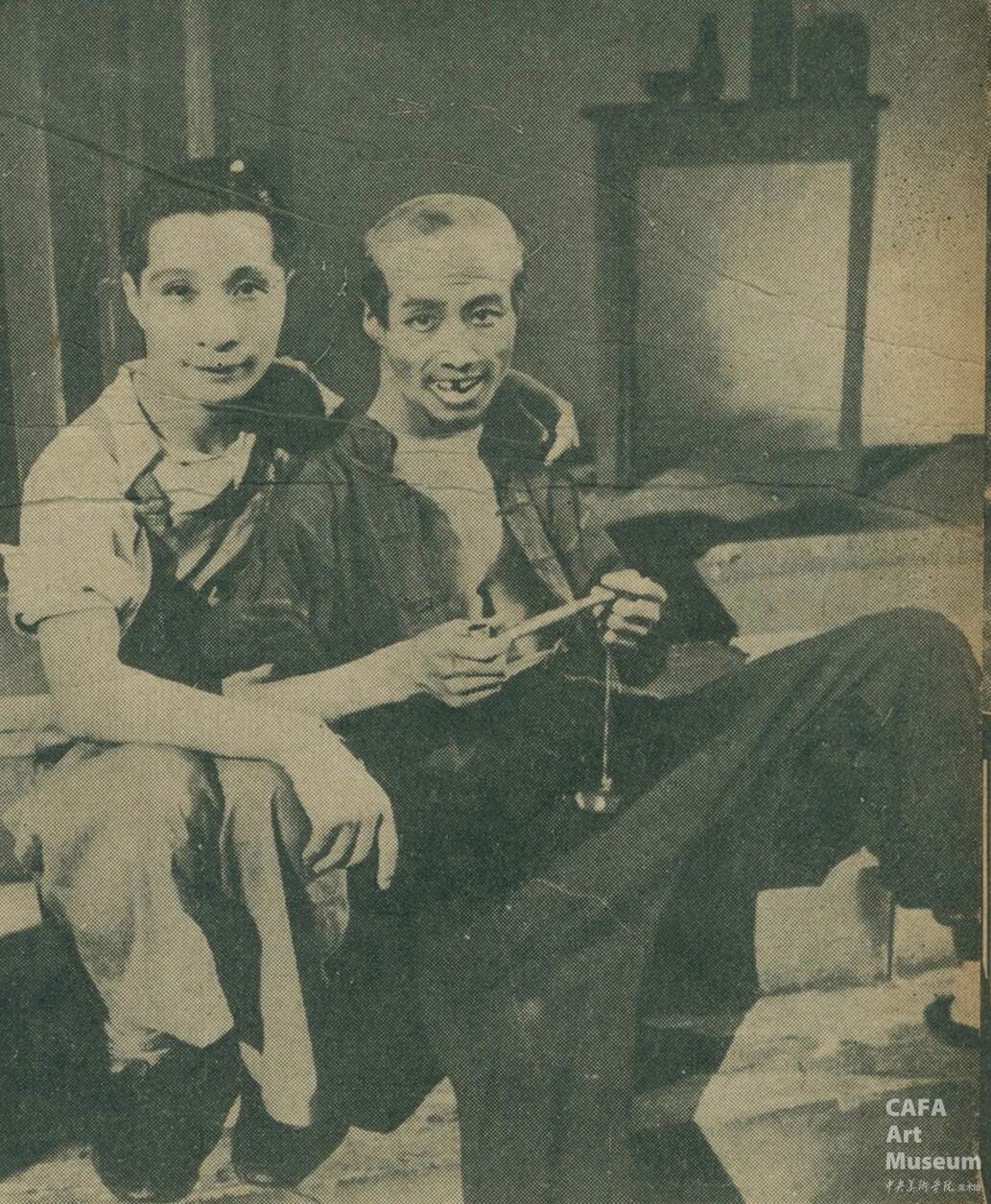
At the end of July 1939, director Xu Xingzhi posed for a group photo with Wang Zhuyou, the actor who played Ah Q.
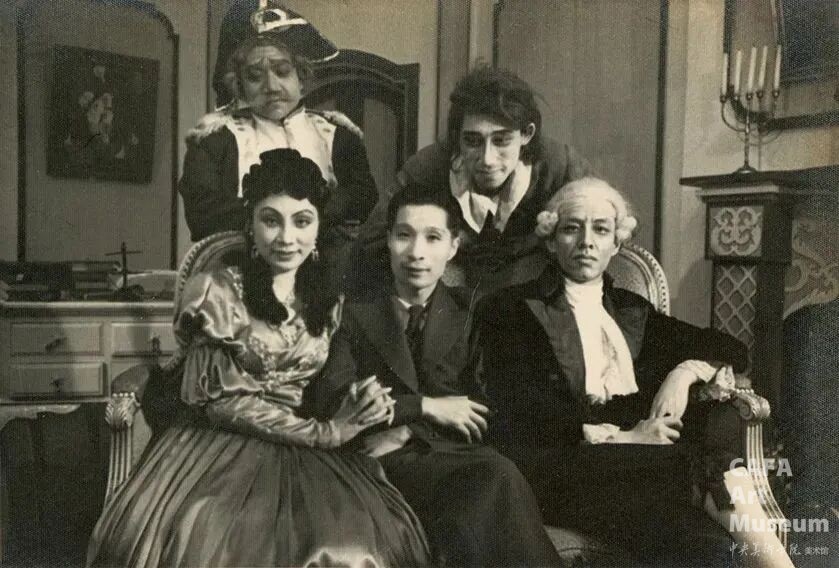
After the fall of Shanghai in 1938, Xu Xingzhi actively participated in the progressive drama movement
in the concession areas and directed a number of stage plays. This is a group photo of him with the actors
after he directed Romain Rolland's The Struggle Between Love and Death.
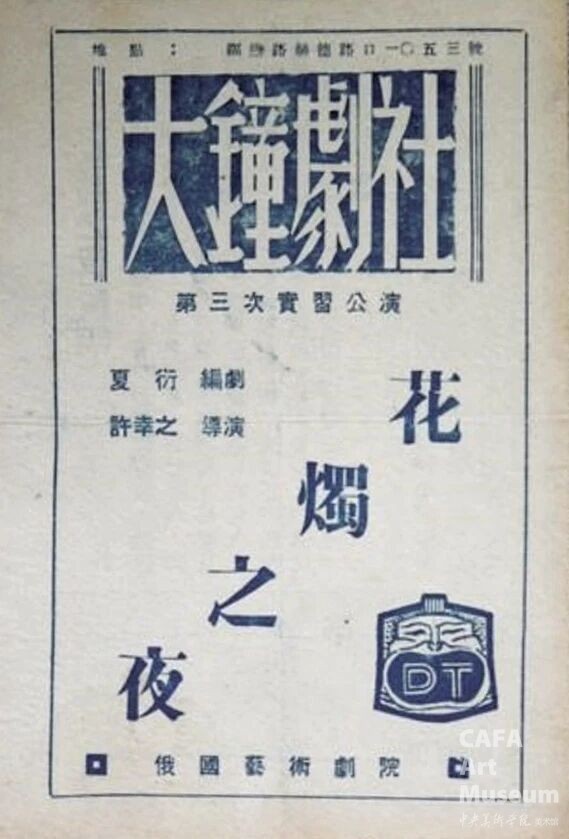
In February 1940, Xu Xingzhi directed Xia Yan's drama The Wedding Night,
which was staged by the Dazhong Drama Troupe at the Shanghai Russian Art Theatre.
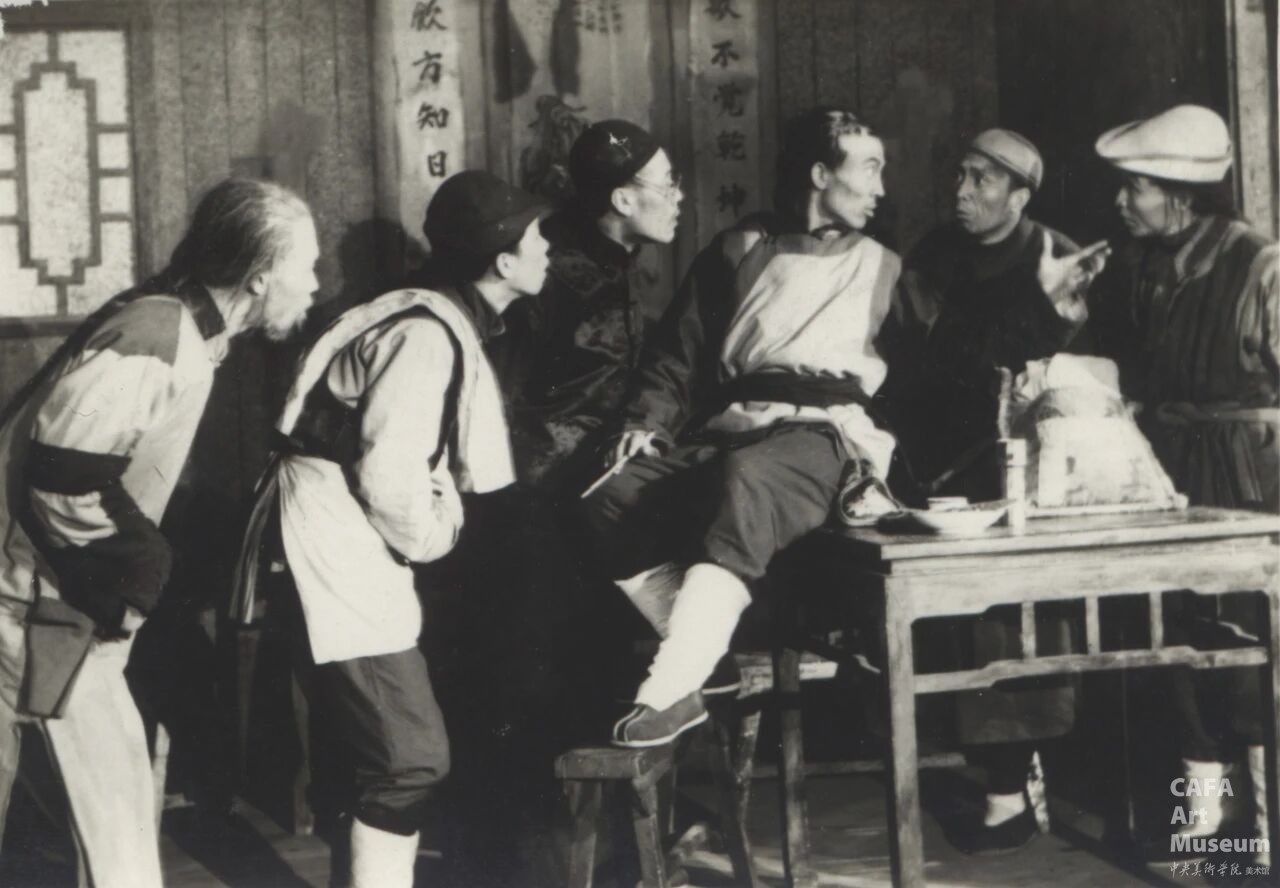
In October 1956, to commemorate the 20th anniversary of Lu Xun's death, a number of theater troupes
across the country re-staged the six-act drama The True Story of Ah Q adapted by Xu Xingzhi.
The picture shows a stage photo from the performance by the Shenyang Drama Troupe.
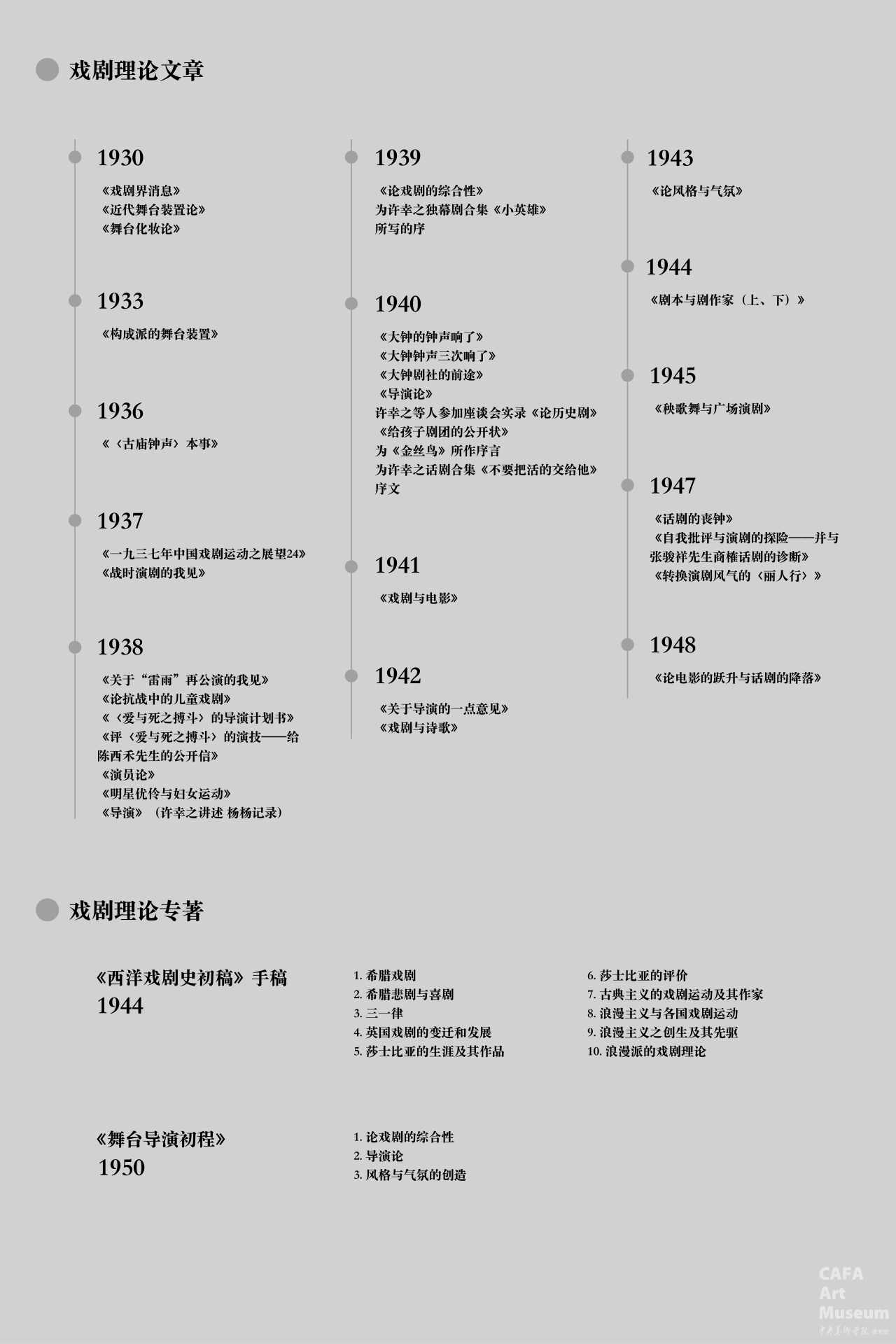
| Artist Profile |
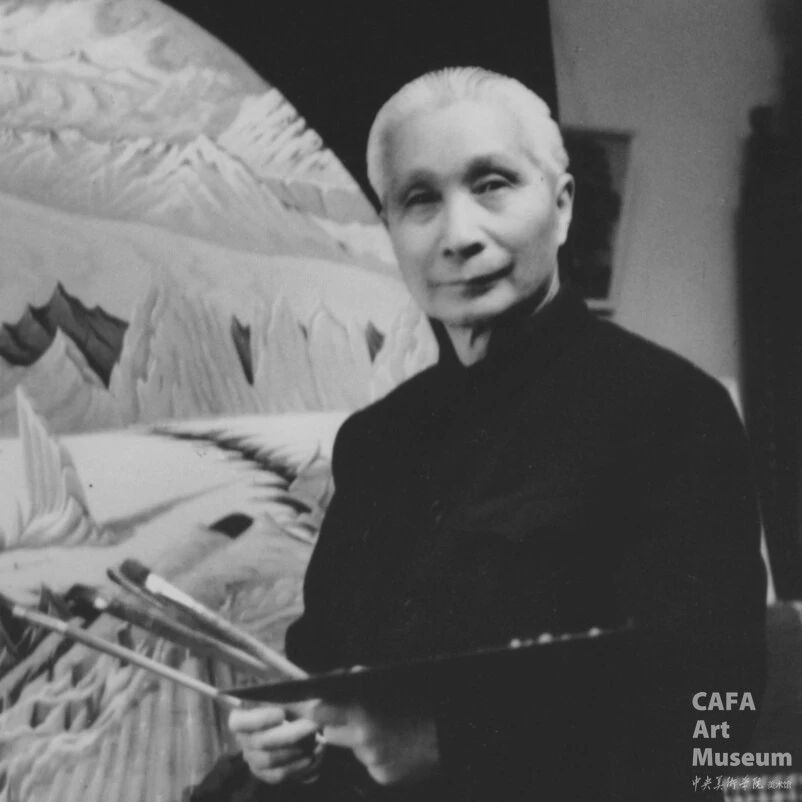
Xu Xingzhi (1904–1991) was a renowned Chinese artist, art historian and theorist, art educator, film and drama director and screenwriter, pioneer of the Left-wing Art Movement, literary and art warrior, member of the Council of the Chinese Artists Association, and professor at the Central Academy of Fine Arts. In his early years, he graduated from the Shanghai Academy of Fine Arts and the Tokyo School of Fine Arts in Japan. In 1930, he participated in initiating and organizing the "Shidai Art Society" (Times Art Society), a Left-wing art group, and was elected as the first chairman of the Chinese Left-wing Artists League.
In the field of literature, Xu Xingzhi was an important poet of China’s 1930s Left-wing Literature Movement, creating representative poems such as Pastoral Song, The Blood Seller, Daban Well, and The Rose on the Spearhead.
In the film industry, he directed films including Children of Troubled Times, Long Live China, and Storm at Sea, and wrote theoretical articles such as On Film Direction and A History of the Development of Film Art. In the drama field, Xu actively engaged in the Left-wing Drama Movement and was the first creator to adapt Lu Xun’s The True Story of Ah Q for the drama stage.
In 1954, Xu was transferred to work at the Central Academy of Fine Arts, where he founded and served as the director of the Art Theory Research Office, laying the foundation for the establishment of China’s art history discipline. In 1959, he was transferred to the Third Studio of the Oil Painting Department, where he collaborated with Professor Dong Xiwen in guiding painting teaching.
Xu Xingzhi was an all-round talent in the literary and art circle. He was not only a pioneering practitioner of artistic creation, but also a researcher, writer, and disseminator of literary and art theories. He made outstanding contributions to the cause of New China’s art history and theory, as well as the cultivation of painting art talents.
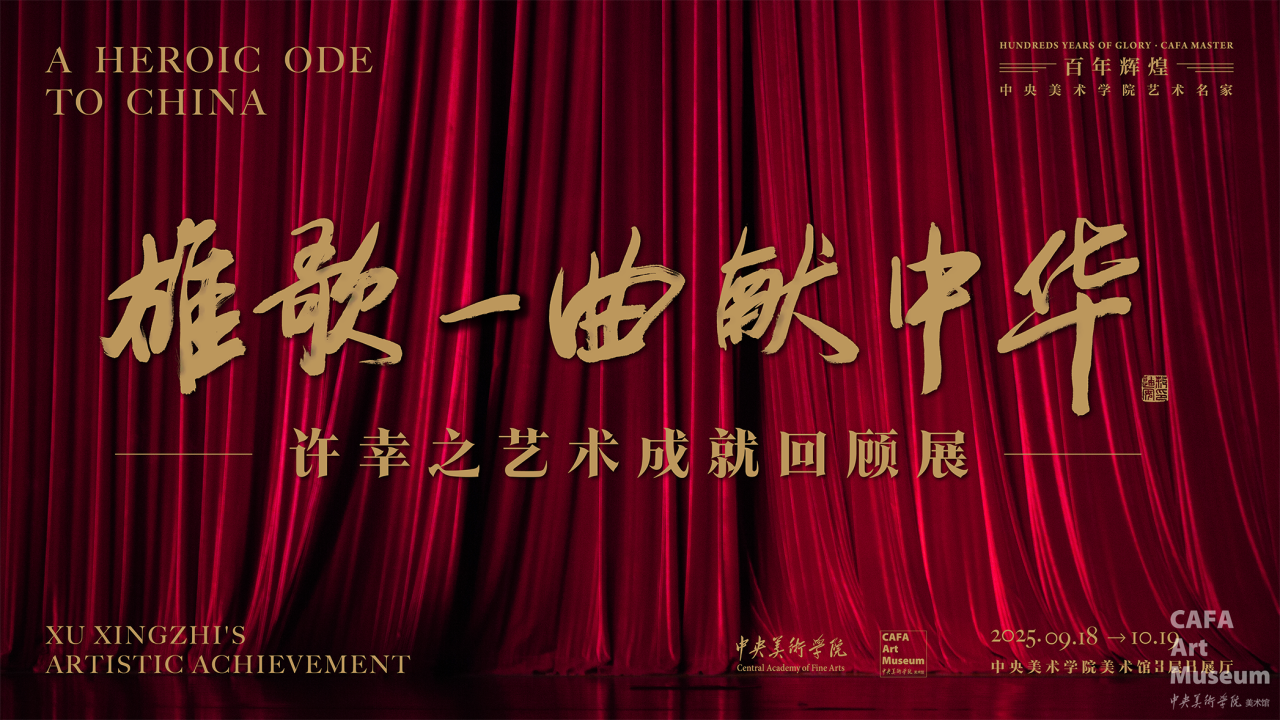
Exhibition Period: September 18 – October 31, 2025
Exhibition Venue: Hall B, 3rd Floor, Art Museum of the Central Academy of Fine Arts
Organizers: Chinese Artists Association, Central Academy of Fine Arts
Co-organizers: Publicity Department of the Party Committee of the Central Academy of Fine Arts, School History Research Center of the Central Academy of Fine Arts, Art Museum of the Central Academy of Fine Arts, School of Humanities of the Central Academy of Fine Arts, Oil Painting Department of the Central Academy of Fine Arts
Supporting Units: National Memorial Museum of the Chinese People's War of Resistance Against Japanese Aggression, China Film Association, China National Film Museum
Acknowledgements: National Art Museum of China, Long Museum, Taikang Insurance Group Inc., Zhiyi Foundation, Wang Wei, Shi Junzhao, Huang Jun, Dong Rui
Chief Editor / He Yisha
Associate Editor / Du Yinzhu
